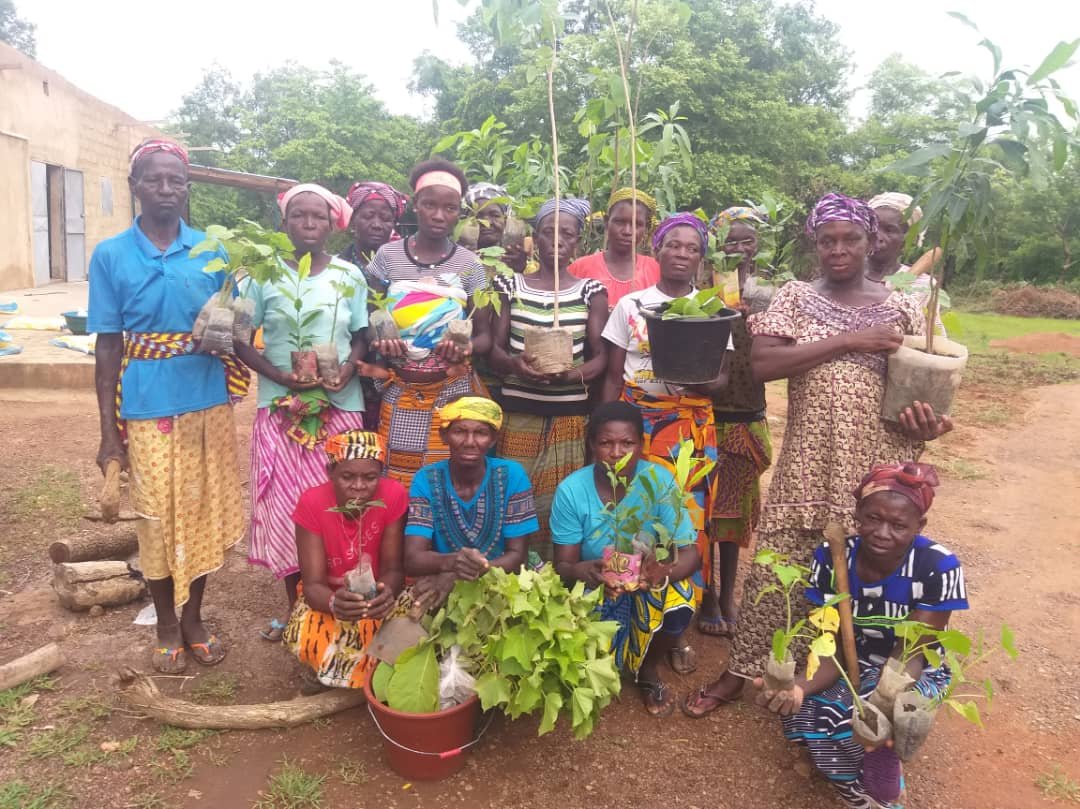Completed Project
Burkina Faso
National Executing Agency: International Union for the Conservation of Nature (IUCN)
Between 2016 and 2021, DGM Burkina Faso supported 85 micro- and subprojects, providing livelihoods benefits to 130,219 individuals. Of the 85 community initiatives, 53 microprojects focused on income generation and sustainable livelihoods, and 32 subprojects supported sustainable Natural Resource Management (NRM) and the improvement of living conditions. The project also supported 29 environmental education projects. The budgets for microprojects ranged from around US$ 8,000 to US$ 18,000 and their duration ranged from 1-2 years. Project topics ranged from production and marketing of non-timber forest products to the establishment of plant nurseries and support for beekeeping as a sustainable livelihood.
-
DGM Burkina Faso supported the equal participation of women in governance systems, required subprojects to conduct a gender analysis of proposed activities, and considered gender implications when reviewing and selecting subprojects. At least four of the 32 GRM chairpersons are women (13%) and 43 of the microprojects are implemented exclusively by women. Forty-five percent of the 98,943 direct beneficiaries are women and there is a progressive upward trend towards the number of female and male beneficiaries justified by the number of women’s associations elected for the 53 microprojects. In addition, over 15 women’s organizations are direct actors in subproject implementation.
DGM Burkina Faso also established specific criteria on gender when reviewing, selecting, and granting subprojects and microprojects. As a result of DGM Burkina Faso’s dedicated funds for micro- and subprojects and the technical support provided by project specialists, women have been able to produce and sell quality products both nationally and internationally. Supported groups have also begun the process of obtaining certification for their products both in terms of quality and fair trade, and received both national and international recognition. Some are recipients of awards for the quality of their product. Through DGM Burkina Faso’s support women have also increased their participation in several decision-making bodies at the local and national level. Income generating activities such as the production of soumbala, shea butter, and cassava have empowered women’s groups.
The project came to a close on June 30, 2021 with the adoption of a completion report by the members of the national steering committee.
To learn more about DGM Burkina Faso, visit www.dgmglobal.org/burkina-faso.
© IUCN Burkina Faso
DGM Burkina Faso Facts
Project Highlight
“Allah Wallou means may God help us so that we can help each other. Our cooperative specializes in milk and soap processing. For that we need the raw materials in the first place. So, we go to the livestock farmers, our suppliers, with clean containers. That milk is then stored in a room. The milk boils immediately. We leave it for about ten to fifteen minutes before we refresh it. After that, we want curdled milk. We add the leaven to get yogurt. After the fermentation and going through the entire process, we can take the final product and turn it into a local beverage called “gapal.” After getting the end-products, we have a motorcycle that we use to transport the product in less than thirty minutes to the fridges where we preserve it. We can then supply our clients later. Women face many problems due to the lack of income-generating activities. Now, every woman works three times a week. Every evening they get money to purchase something for their families. They say the cooperative is helping a lot. Before the project got funded, we were poor. We are delighted. Because it gave us a lot of opportunities. It raised women’s awareness of the need to protect the forest. The forest you now see, couldn’t have survived without a change of attitude. No woman is now going to cut a tree because we all know the importance of trees.” – Diallo Kadidja, Head of Allah Wallou, women’s dairy group
Through CIF funds, DGM Burkina Faso provided the materials and funding for the Allah Wallou Dairy Cooperative. It also offered female workers training to safeguard their financial independence.
Alla Wallou Cooperative leader, Diallo Kadida on the right showcasing ‘galapal ‘ a local beverage prepared by the women in the cooperative.© IUCN Burkina Faso
© IUCN Burkina Faso
“The benefit from this DGM project [is that] it helped IUCN implement nature-based solutions and it also helped the community to know their voice counts at the national and local policy level…The country project in the future can achieve a high level of commitments from local communities and local government in terms of natural resource management. When the local communities are involved, we ensure that the sustainability of the intervention is guaranteed.”
– Jacques Somda, IUCN Burkina Faso (NEA)








